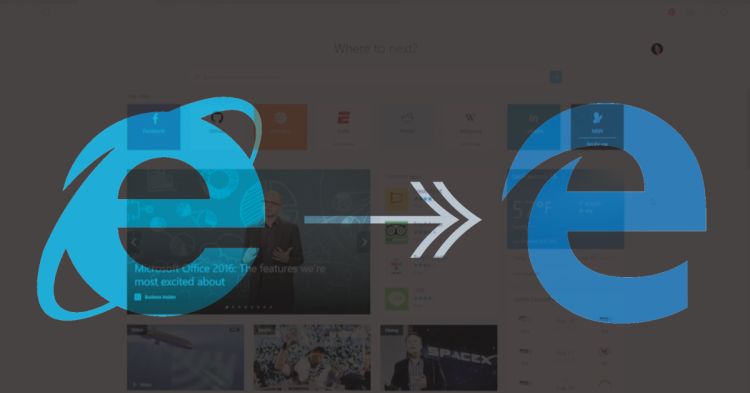Microsoft has announced a big change in how the Cortana search box in Windows 10 will work going forward: All searches will be powered by Bing, and all links will open with the Edge browser. This is a server-side change going into effect today. Once it takes effect on your Windows 10 computer, Cortana will no longer be able to serve up results from third-party search providers, like Google or Yahoo, nor take you to a third-party browser, such as Google Chrome or Mozilla Firefox.
To be clear, you will still be able to set the default search engine or default browser in Windows 10 to whatever you want. This only impacts the Cortana search box in the bottom left corner on the Windows 10 taskbar, which lets you search across apps, documents, settings, and the Web with the help of Microsoft’s digital assistant.

So why is Microsoft making this change? The company says it all comes down to the Cortana experience: She is powered by Bing (completely true), and she needs Edge for some of her features to work (but not all, or even most).
“Unfortunately, as Windows 10 has grown in adoption and usage, we have seen some software programs circumvent the design of Windows 10 and redirect you to search providers that were not designed to work with Cortana,” Ryan Gavin, Microsoft’s general manager of search and Cortana, said in a statement. “The result is a compromised experience that is less reliable and predictable. The continuity of these types of task completion scenarios is disrupted if Cortana can’t depend on Bing as the search provider and Microsoft Edge as the browser. The only way we can confidently deliver this personalized, end-to-end search experience is through the integration of Cortana, Microsoft Edge and Bing – all designed to do more for you.”
Gavin is correct, to an extent. Back in September 2015, the company flipped a switch that let Cortana start showing you coupons in Microsoft Edge. Gavin offered a few examples today of what this feature can do for you:
- Search for “Pizza Hut” in the Cortana box and, once you’re on the Pizza Hut website in Microsoft Edge, Cortana can show you your closest locations.
- Search for “Bluetooth not working” in the Cortana box, and Bing gives you a rich video help answer only available on Windows 10 as a Bing search result.
- Shopping for a new black dress in Microsoft Edge, do an image search in Bing and then right-click a dress to Ask Cortana to get you more information on it.
- Search for “Best Buy” in the Cortana box, click through on the top web result to bestbuy.com, and Cortana will offer up coupons to save you money.
So yes, this feature, and others that Microsoft undoubtedly has in the works (“end-to-end personal search experiences,” the company calls them) are not possible if the Cortana search box has been set to use something other than Bing or Edge. For example, Gavin says that one day users will be able to tell Cortana: “get tickets to Rihanna show,” and she’ll find the best tickets based on your preferences and even offer to buy them for you.
That said, all your other searches that work just the same (or maybe even better) with third-party search engines and browsers — they also now have to go through Bing and Edge. Whether you like it or not, the Cortana search box (which, by the way, you can remove from the taskbar) is now a Microsoft-only affair.
This is not the first time the company has pushed users back to its search engine and browser, and it likely won’t be the last. It’s almost as if Microsoft is unhappy with Bing and Edge usage in Windows 10 (though the company regularly notes in its quarterly earnings reports that advertising revenue from Bing has grown thanks to Windows 10 integration) or at least wants it to be higher.
And so the company wants to ensure that the most prominent way to search in Windows 10, the box right beside the Start button, isn’t leading users astray. Of course, this would be a much easier sell if users were really blown away by Microsoft’s search engine and browser — the coupon feature is neat, but it’s not going to create any Microsoft fans.
What’s odd in this case is that Microsoft made this change without testing it with Windows Insiders. That’s surprising, given how the company has been building Windows 10 to date.
VentureBeat's mission is to be a digital town square for technical decision-makers to gain knowledge about transformative enterprise technology and transact. Learn More

